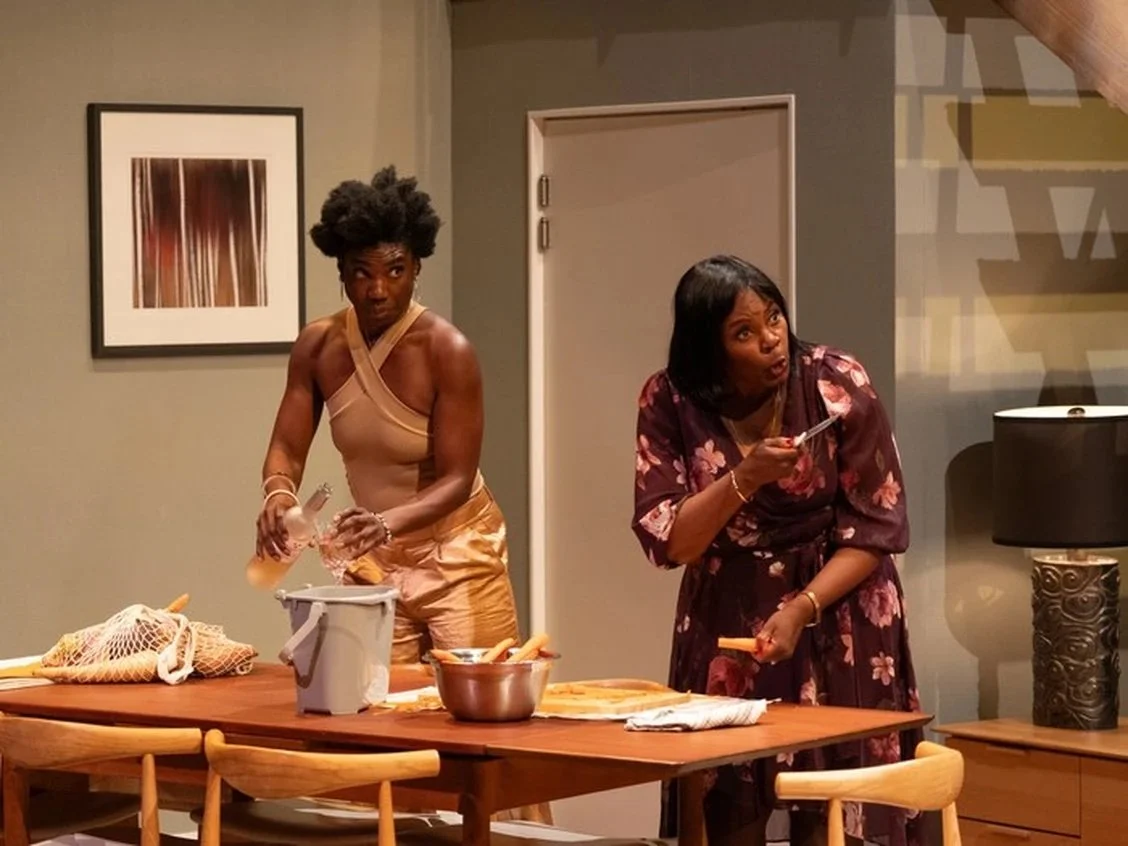Theatre review: Fairview lulls audiences into a sense of security before pulling the rug out in provocative and hilarious ways
White, liberal, social-media virtue signallers beware: The Search Party play has you in its sights
Miranda Edwards and Angela Moore in Fairview. Photo by Moonrider Productions
Fairview is at The Cultch Historic Theatre until October 8.
IN THE OPENING MINUTE of Jackie Sibblies Drury’s Pulitzer Prize-winning play, Fairview, the character Bev dances to the crooning tones of Al Green’s “Let’s stay together” when the music warbles and skips, just for a second or two. She looks momentarily worried, but the record rights itself, and all is–seemingly–fine again. It’s a tiny detail that hints at the distortions that will ensue for the characters and, even more significantly, for the audience.
To reveal more about what these distortions are would be a disservice to The Search Party production and its intentions. Suffice to say that it’s a work that lulls you into a sense of security, before pulling the rug out from under you in ways that confront, provoke, and challenge. On its surface, it’s about a middle-class Black American family preparing to celebrate the birthday of their grandma and matriarch, who remains hidden upstairs in her bedroom, apparently in “one of her moods.”
The harried Bev, played by Angela Moore, is beside herself with stress, wanting everything to be perfect. She bickers with her good-natured husband, Dayton, played by Christopher Bautista, spars with her sassy sister Jasmine, Miranda Edwards, and pesters her over-achieving teenage daughter, Keisha, played by Yasmin D’Oshun. The family members squabble, make up, dance, and joke. So far, so familiar; all that’s missing is a recorded laugh-track and we could be watching a cable sit-com à la Family Matters.
But come Act Two, things get a little weird. Then, they get uncomfortable. While the action shifts in tone, it doesn’t lose its humour, although what we’re laughing at becomes increasingly discomfiting. White, liberal, social-media virtue signallers beware: Drury has you in her sights. Things reach peak absurdity with the long-awaited reveal of Grandma, in Act Three. Without giving away too much, there is a collision of worlds that is at once horrifying and hilarious.
As the farce intensifies, co-directors Kwaku Okyere and Mindy Parfitt encourage the cast to lean into caricature. They do, with abandon—all apart from Keisha, who begins to break through the facade. It is she who drives the production to its shattering conclusion, one which confronts white audience-goers with a choice: whether to sit still, or to right the record.














